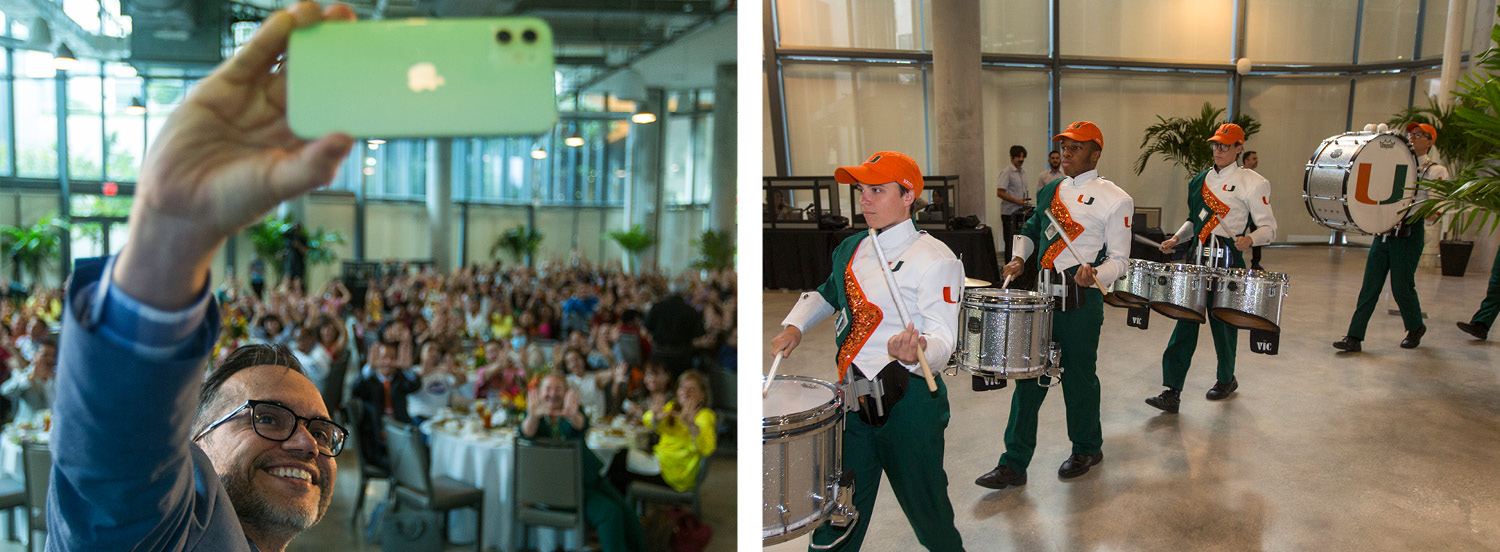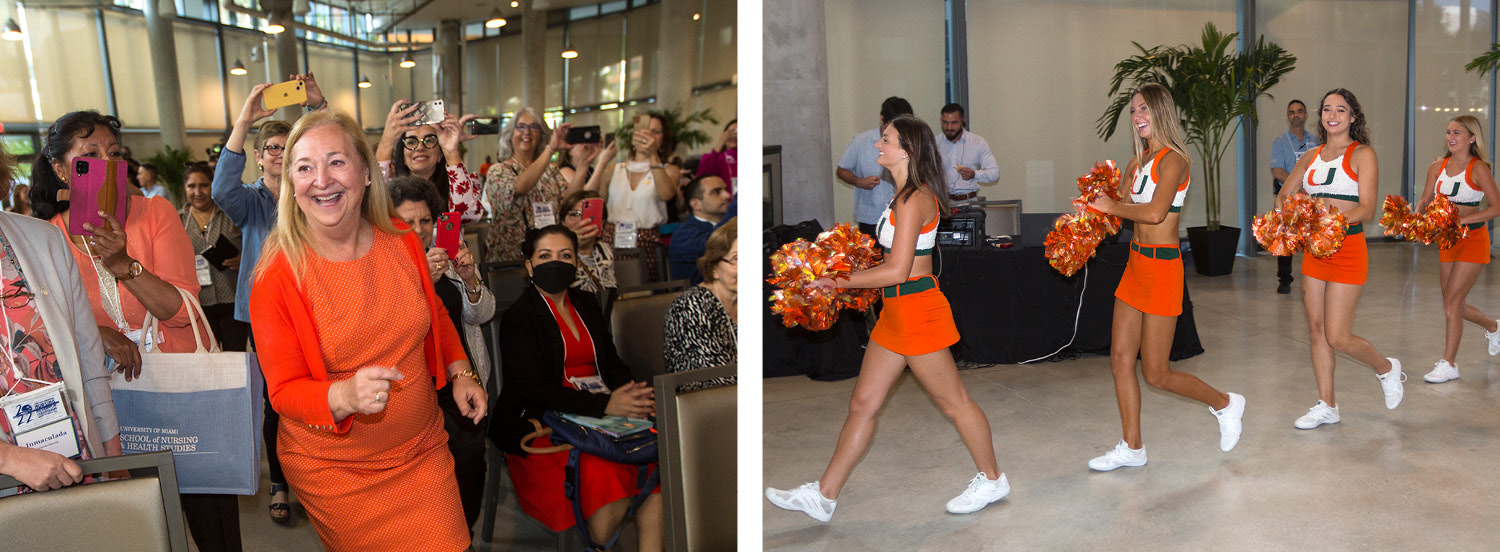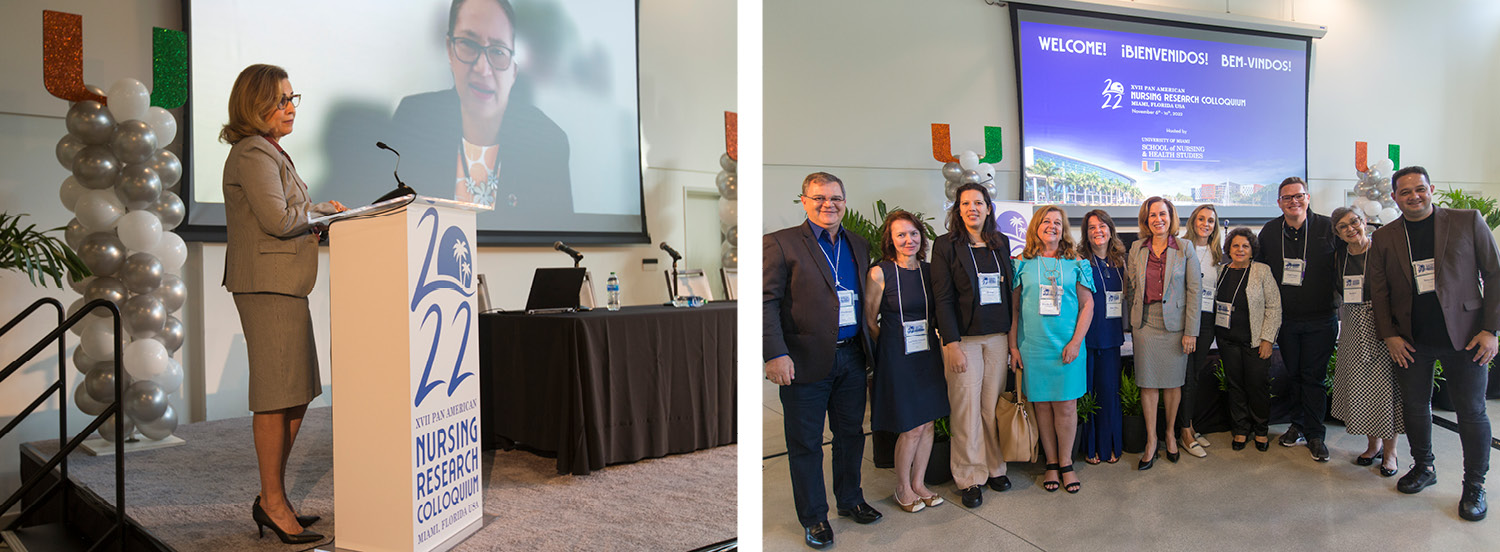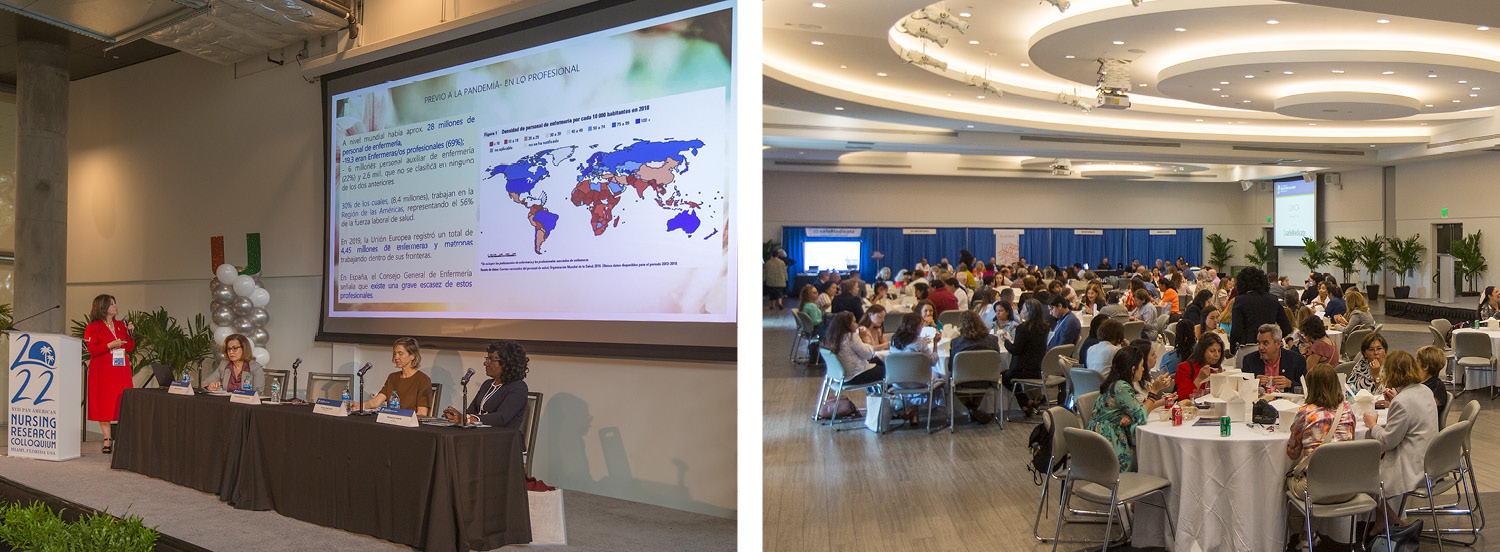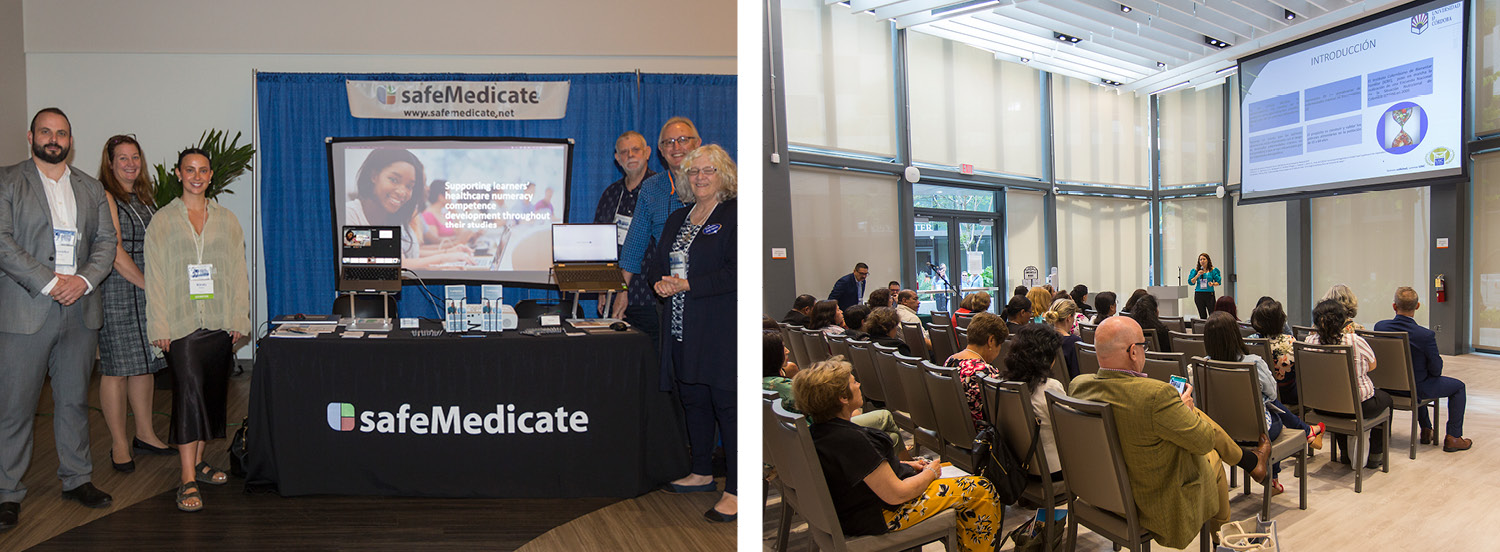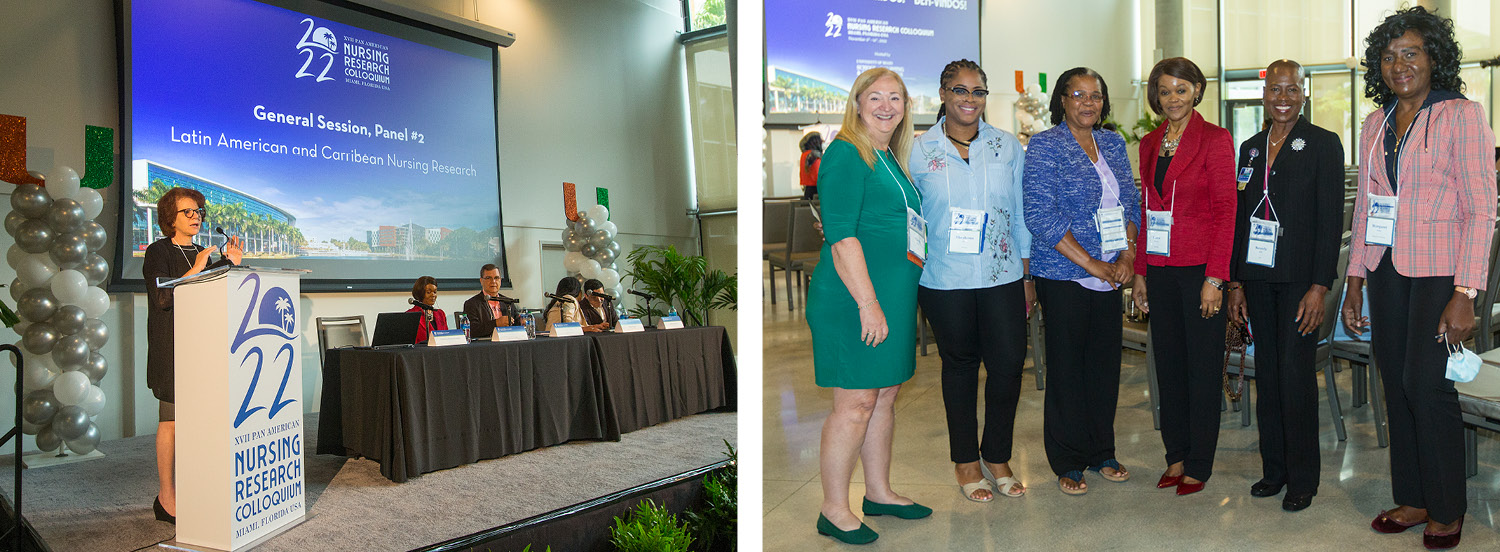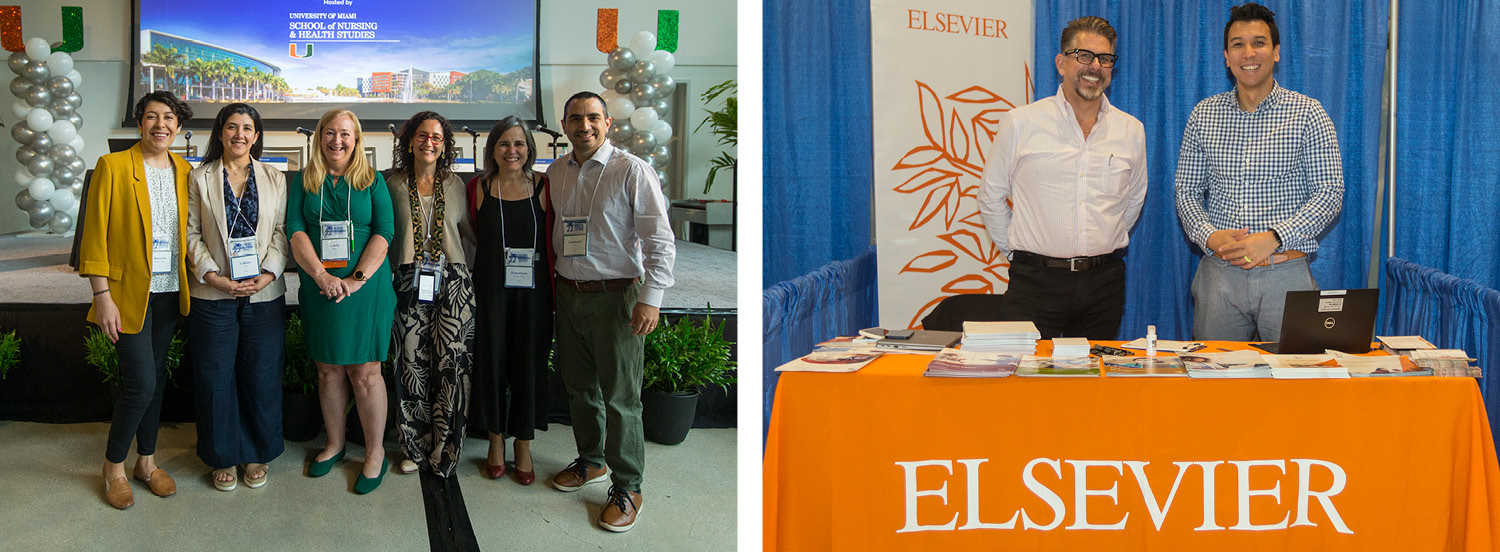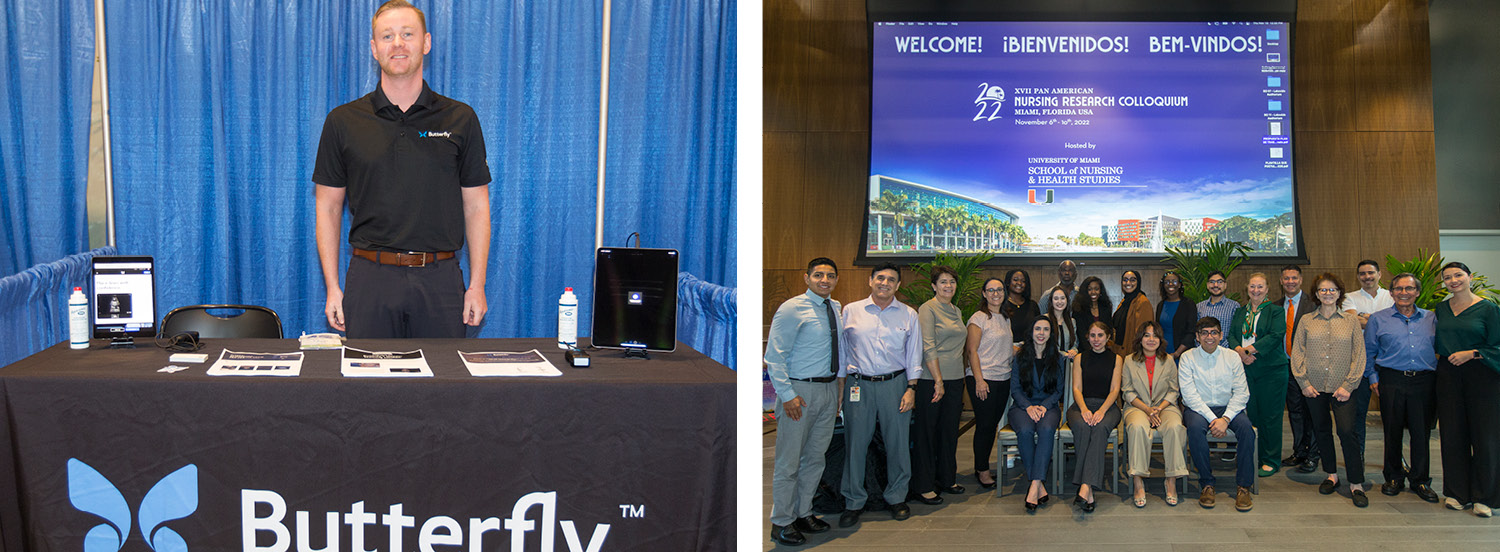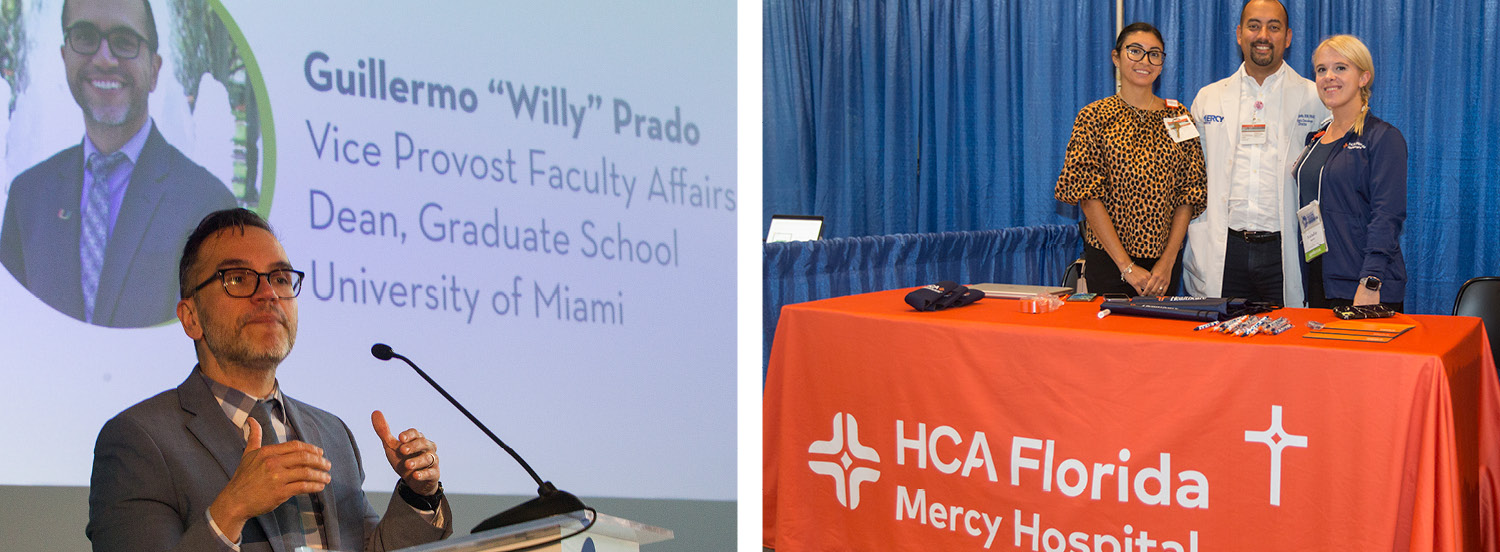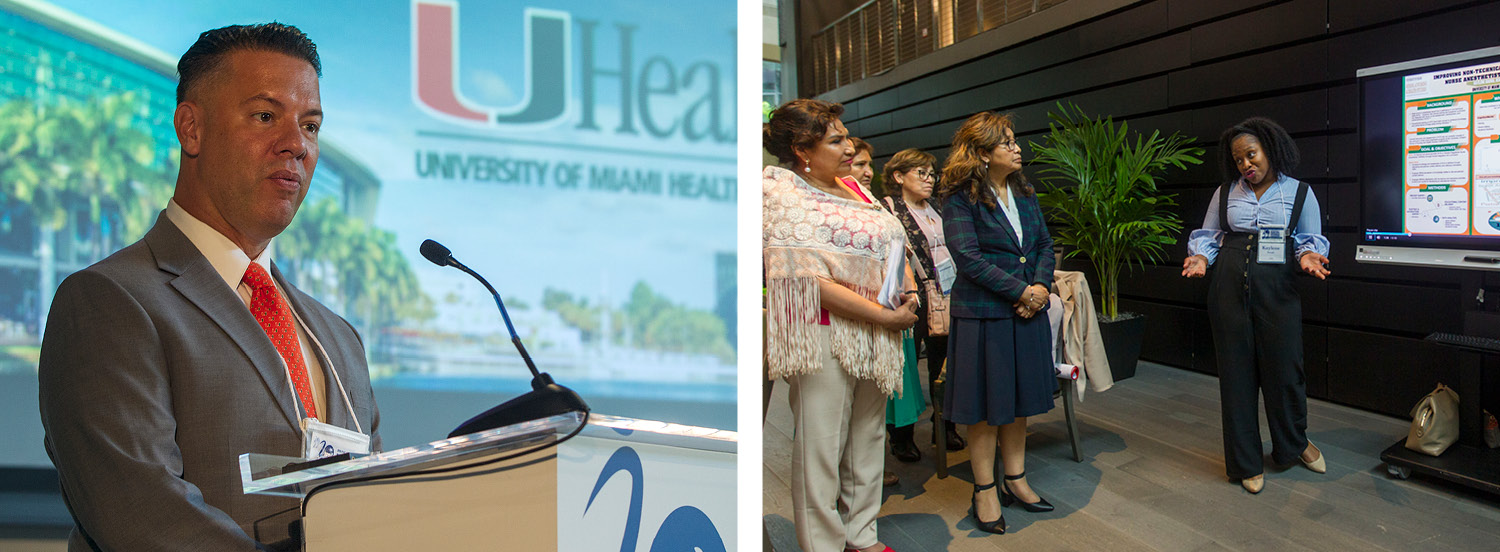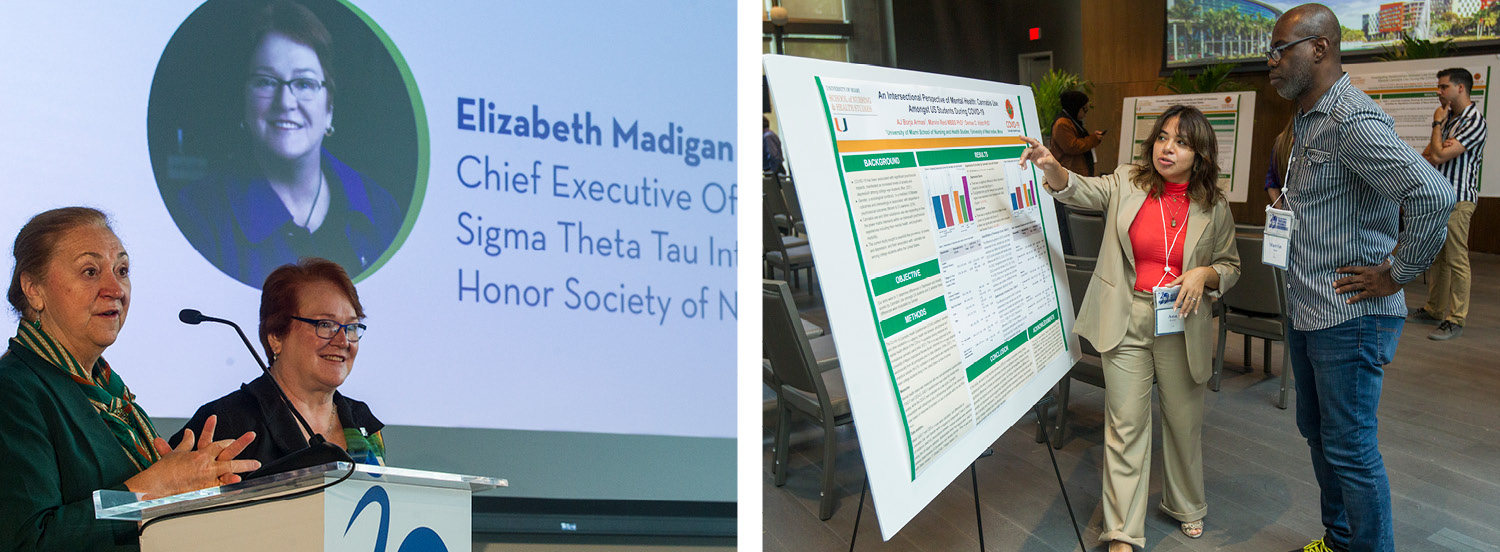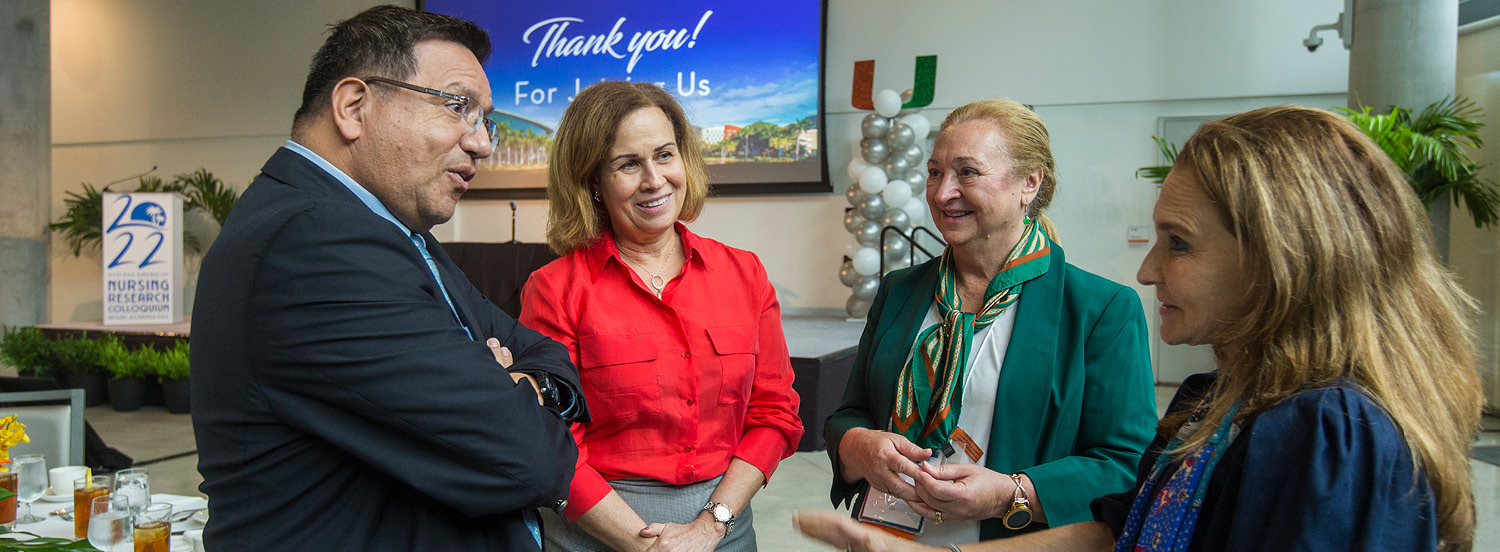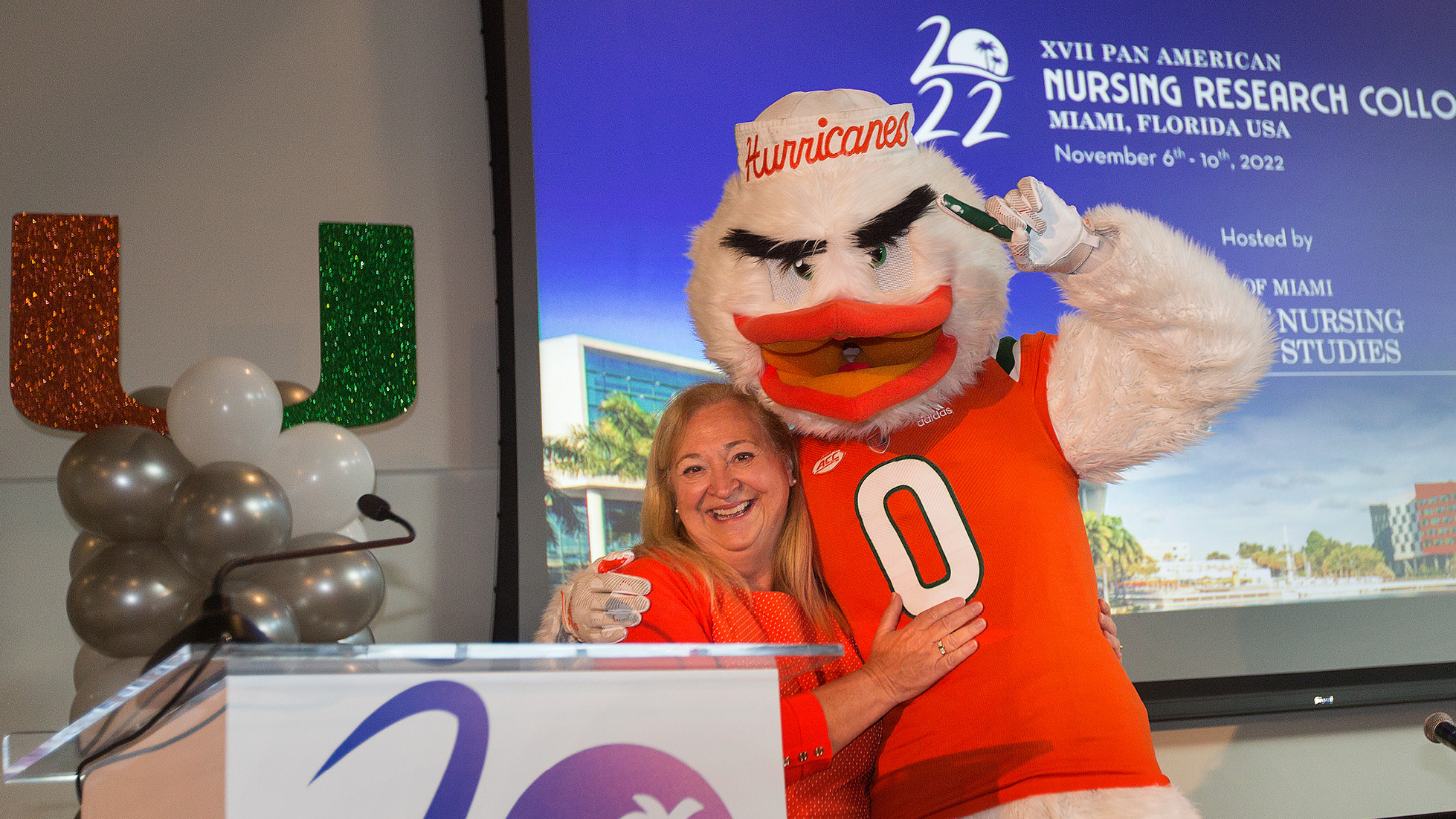Over 200 international members of the nursing profession converged on Lakeside Village Nov. 8-10 for the XVII Pan American Nursing Research Colloquium, hosted by the School of Nursing and Health Studies.
The conference, which is presented biennially across the world by the Pan American Health Organization (PAHO) and the World Health Organization (WHO), opened Tuesday with a keynote address from the WHO chief nursing officer, Elizabeth Iro.
Iro joined conference attendees virtually to discuss lessons learned throughout the pandemic and to encourage nursing professionals to seek support when needed to excel. She previously served as the Secretary of Health of the Cook Islands before joining the WHO.
“Collaboration can strengthen efficacy and policy messages on shared issues,” she said. “Collaboration among multidisciplinary teams is essential in maximizing contributions in the delivery of primary health care, achievement of universal health coverage, and the attainment of sustainable development.”
Iro’s address aligned with the colloquium theme, “Building the Future of Nursing for Universal Health,” which focused on highlighting research concentrations and collaborations in Latin American and Caribbean countries and supporting the United Nations sustainable development goals.
Participants came from around the U.S., as well as Colombia, Brazil, Mexico, Spain, the United Kingdom, El Salvador, Chile, Israel, Portugal, Cuba, Jamaica, Bolivia, and over a dozen other countries. Many more logged on globally for the virtual portions of the hybrid conference.
They were greeted with Band of the Hour fanfare and a warm welcome from Cindy Munro, dean of the School of Nursing and Health Studies, and Johis Ortega, associate dean for hemispheric and global initiatives and director of the school’s PAHO/WHO Collaborating Centre for Nursing Human Resources Development and Patient Safety.
“We gather to work toward ‘Building the Future of Nursing for Universal Health,’ united by a compelling vision that has the power to be transformational at every level—from the infrastructure that supports health care to the nurse clinicians who deliver compassionate care, to the nurse educators who are preparing the next generation of nurses, to the nurse researchers who develop new knowledge and approaches to treatment, to the public health policy-makers who impact health care implementation,” Munro said.
The conference reconvened Wednesday with keynote speaker Pamela Cipriani, president of the International Council of Nurses, who previously served as dean of the University of Virginia School of Nursing and president of the American Nurses Association.
On Thursday morning, Liz Madigan, chief executive officer of Sigma Theta Tau International Honor Society of Nursing, the second-largest nursing organization in the world, gave the closing keynote, speaking about the importance of leadership development in the nursing profession.
Madigan, who previously led global health initiatives as a tenured professor at Case Western Reserve University, where she also directed the WHO/PAHO Collaborating Centre for Home Care Nursing, addressed the impact of the pandemic on nurses and the future of the profession.
During her remarks at the Lakeside Village Expo Center, Madigan noted the importance of fostering mentor relationships, reiterating the impact additional support can have on the long-term career of a nurse. “Every nurse is a leader, and we need to help them recognize that,” she said.
Madigan went on to encourage the audience to think critically about the way their leadership in various countries builds the nursing profession and how nurses contribute to the Sustainable Development Goals—17 goals the United Nations set forth as part of a global call to action for health, justice, and prosperity. In particular, she highlighted responsible consumption and production, and climate action (goals 12 and 13, respectively). Health care, she noted, contributes five percent of C02 emissions—twice the carbon footprint produced by the aviation industry. “There are nurses working with climate action,” she said, “but I think we all have a responsibility to think a little more clearly about what our contribution is.”
Each address concluded with a question-and-answer session with audience members. Following the daily keynotes, the conference offered thought-provoking panel discussions about research in Latin America and the Caribbean, the State of the World’s Nursing report, and health policy.
International researchers also presented abstracts and posters to their colleagues in English, Spanish, and Portuguese, addressing research related to clinical practice; education strategies; or health systems, services, and equity.
Research, Madigan noted, is significant in providing evidence to support the development of nursing leadership across the globe.
“….Because of the credentials, experience, and knowledge that you have as a nurse scientist,” she pointed out, “you can contribute to larger conversations, so I would encourage you to think outside of your usual scientific communities.”
